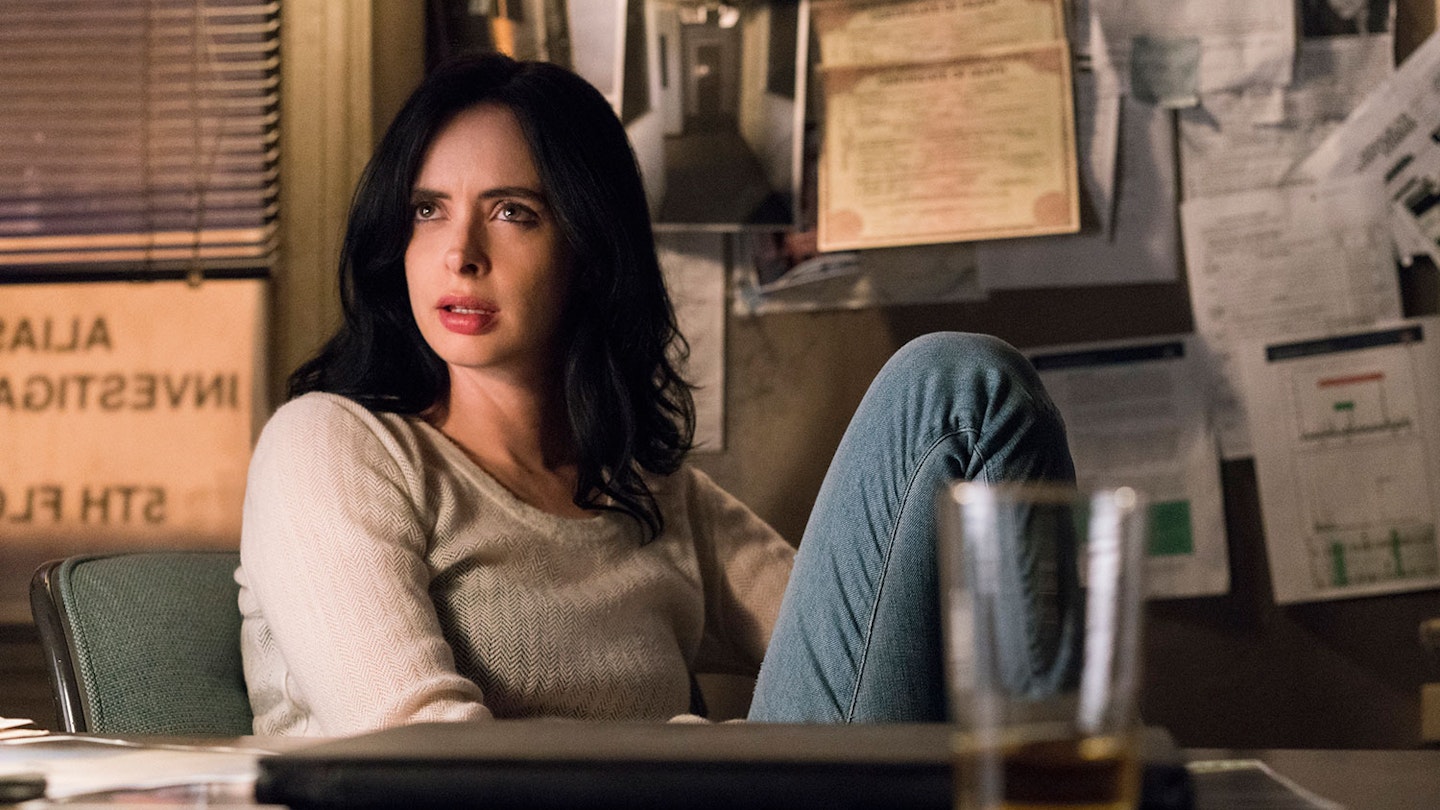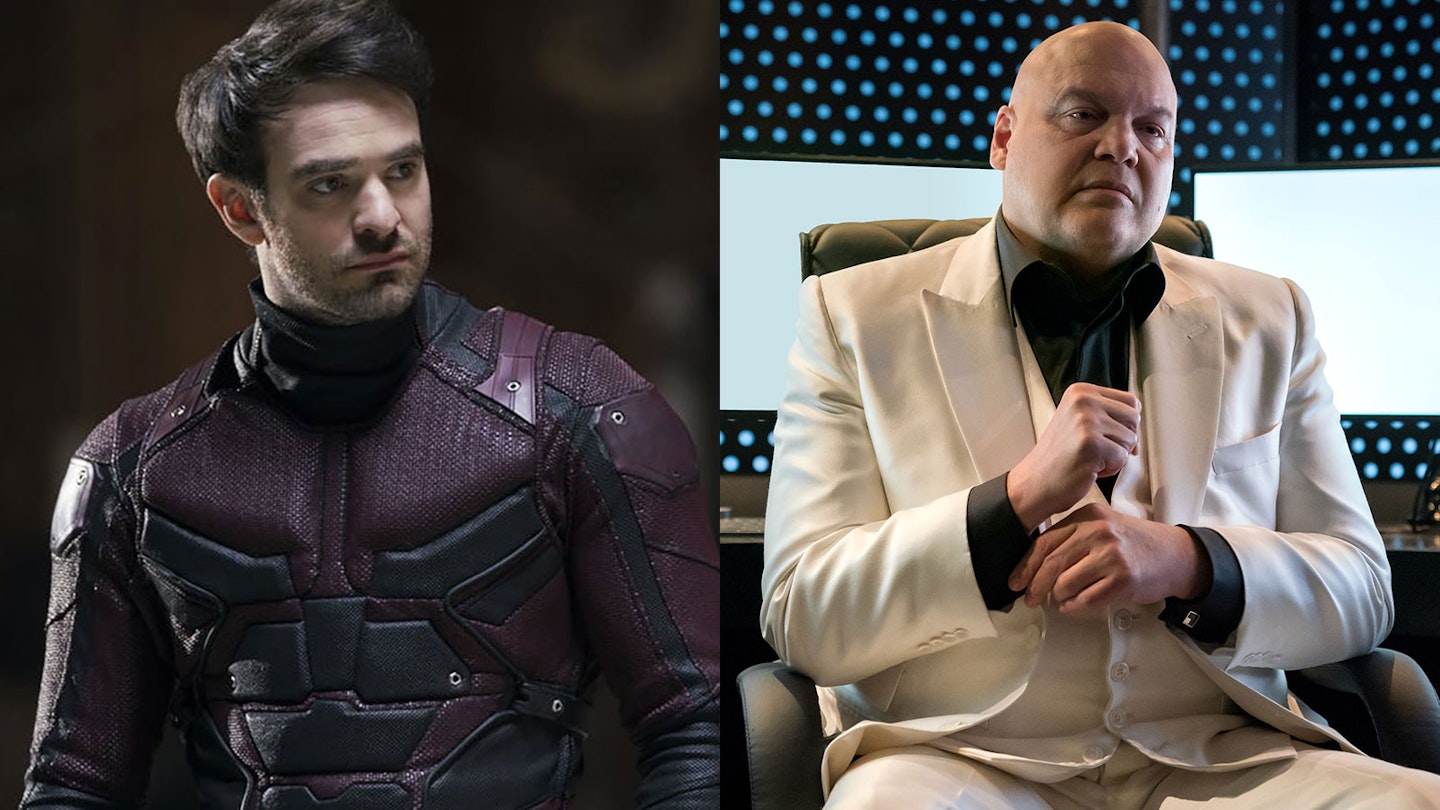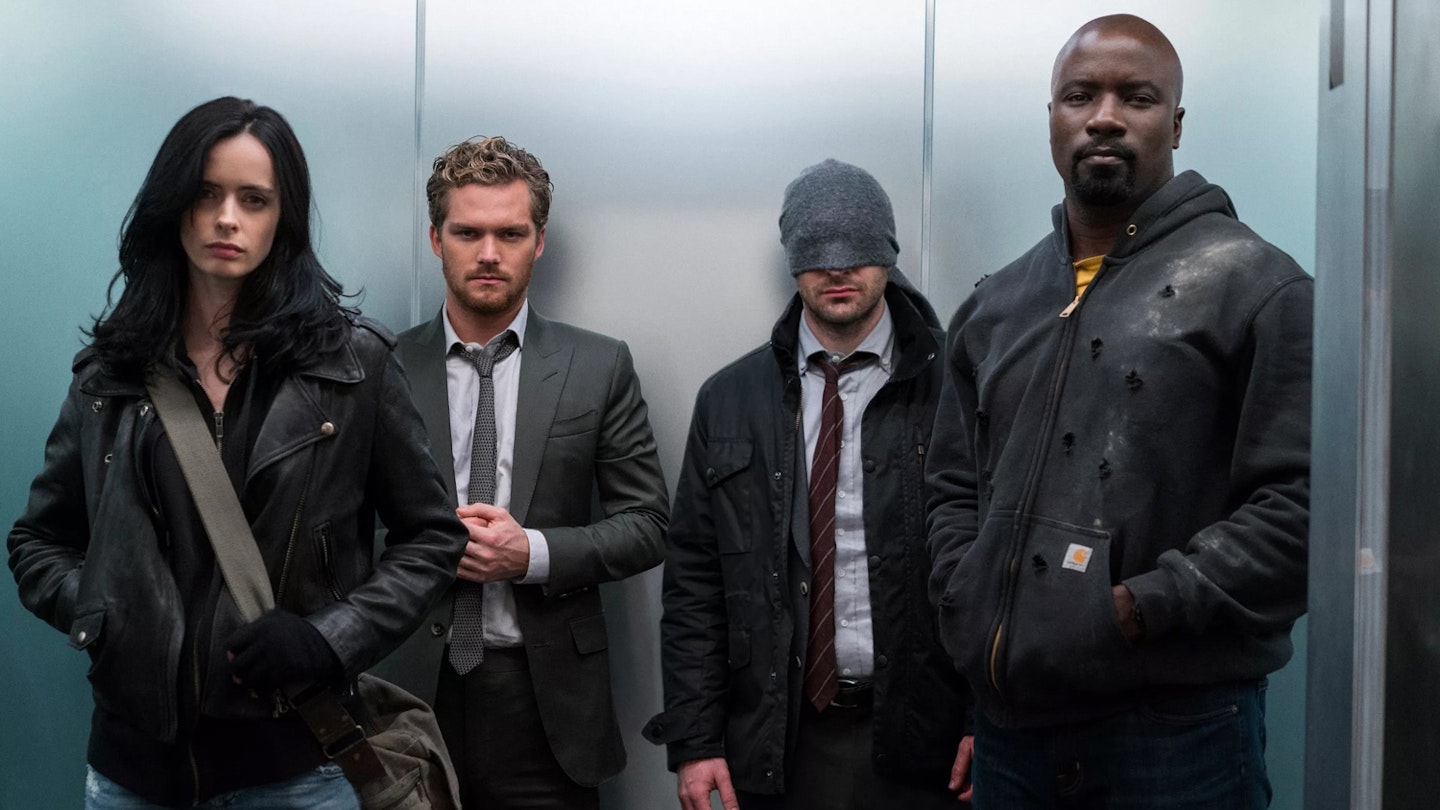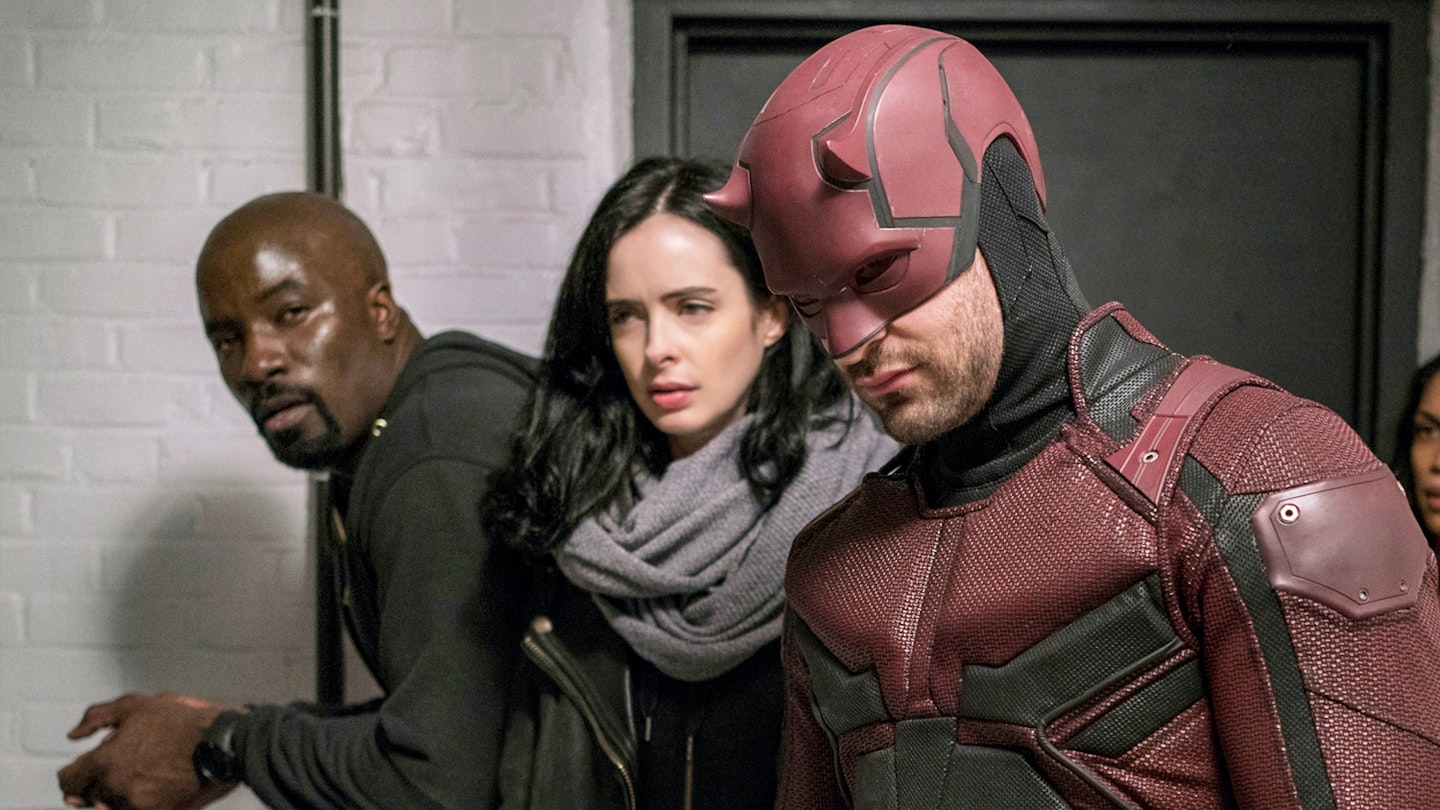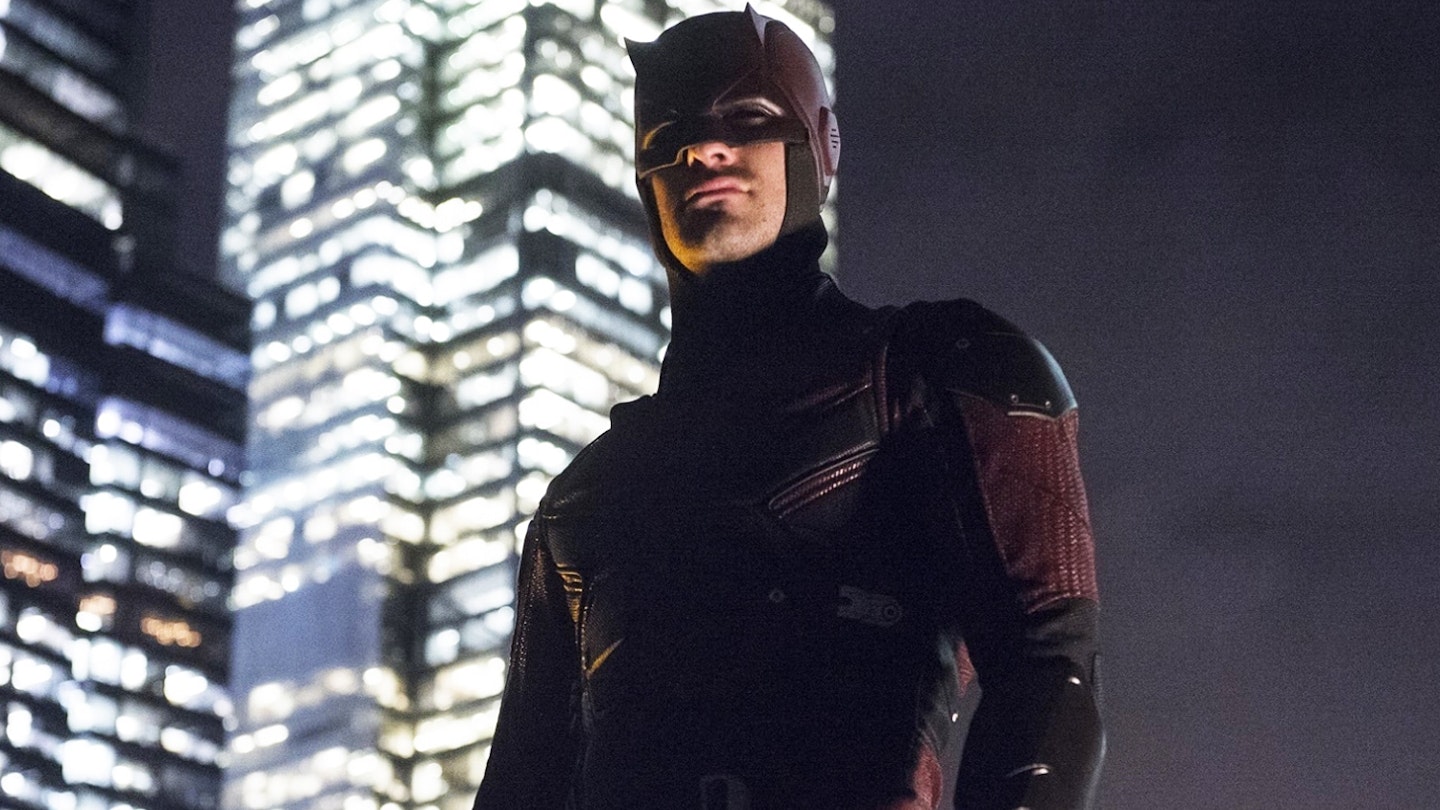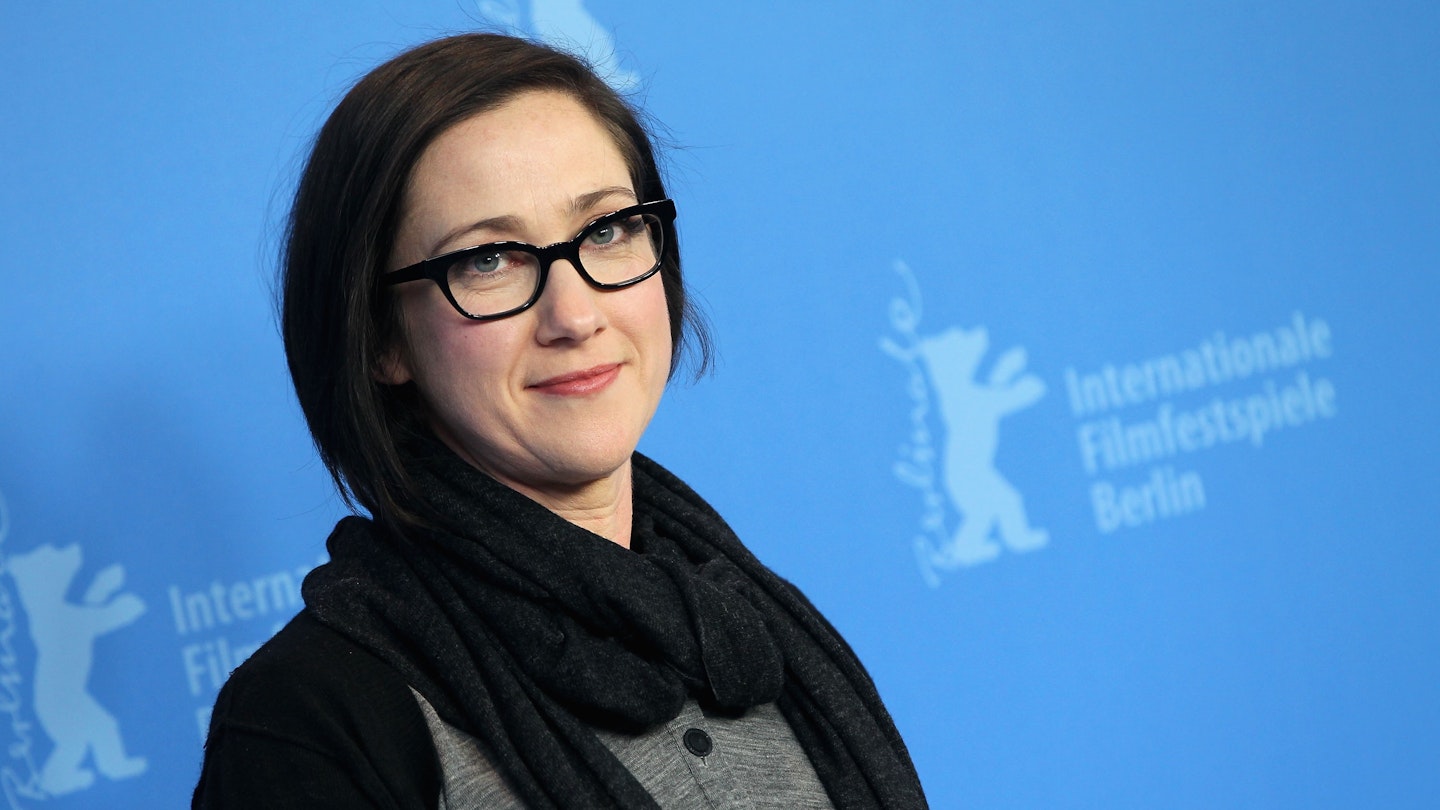“With great power comes great mental illness,” says a short-lived character at the beginning of the second season of Jessica Jones, which sets its stall out early, and firmly. That not-too-subtle riff on Spider-Man’s catchphrase is a hardly necessary reminder that the Marvel Universe’s Netflix-tethered heroes are, typically, unwilling, hardly ecstatic recipients of their super-abilities.
So where the first 13 episodes of the show boldly focused on Jessica’s struggle to vanquish a nemesis who was basically a hyper-amplified abusive boyfriend, we now find her thrashing about in more familiarly angsty waters. Hence all the nightmarish flashbacks to childhood medical-experiment traumas, and Jessica’s eventual determination to sniff out the shady science-types who fucked her up in the first place.
The mind-controlling Kilgrave, then, was just the most recent devil to push Ms Jones into her cycle of binge boozing and grubby casual sex, and shorten her fuse to the point where she’s court-ordered to attend anger management classes. (Though it’s with great relief we can report that therapy and Jessica do not mix well.)
Krysten Ritter's still on top acerbic, deadpan form.
Dramatically speaking, it’s a tad disappointing. What made the first season the strongest and smartest of the Marvel/Netflix set was the way it presented itself as less a superhero story with a feminist twist than a smart feminist noir-thriller with a superhero twist. Now, aside from some post-Weinstein-relevant drama with a sleazy filmmaker from Trish’s (Rachael Taylor) child-actor days, the show focuses more on the distrust and prejudice Jessica faces as an outed “super”. Which brings to mind the “mutie”-hatred of the X-Men films: the new superintendent at Jessica’s building (J.R. Ramirez) who initially orders her to stay away from his kid, for example, or the cop who sneeringly says “you people” during an interrogation.
It’s not a huge problem, but is certainly less compelling than the previous season’s ultra-dark psyche-out, which was driven with malevolent glee by David Tennant’s Kilgrave. This is only underlined by the arrival of a new foe who, in these first five episodes at least, appears to be little more than a stronger, badder and freakier version of Jessica herself.
Thankfully, Krysten Ritter’s still on top acerbic, deadpan form, and the (mostly female) writers’ room is generous and proficient with its one-liners. When a cocksure alpha bro-dude struts into Jessica’s office, announces he’s another private eye who wants to buy her out and says he doesn’t take no for an answer, Jessica retorts, “How rapey of you.” So while the plotting feels like it’s back-stepped towards the super-vigilante conventional, she at least remains the most textured and spikily interesting of the Defenders — one whose guilt, self-loathing and rage at least come served with a potent dose of wit.
